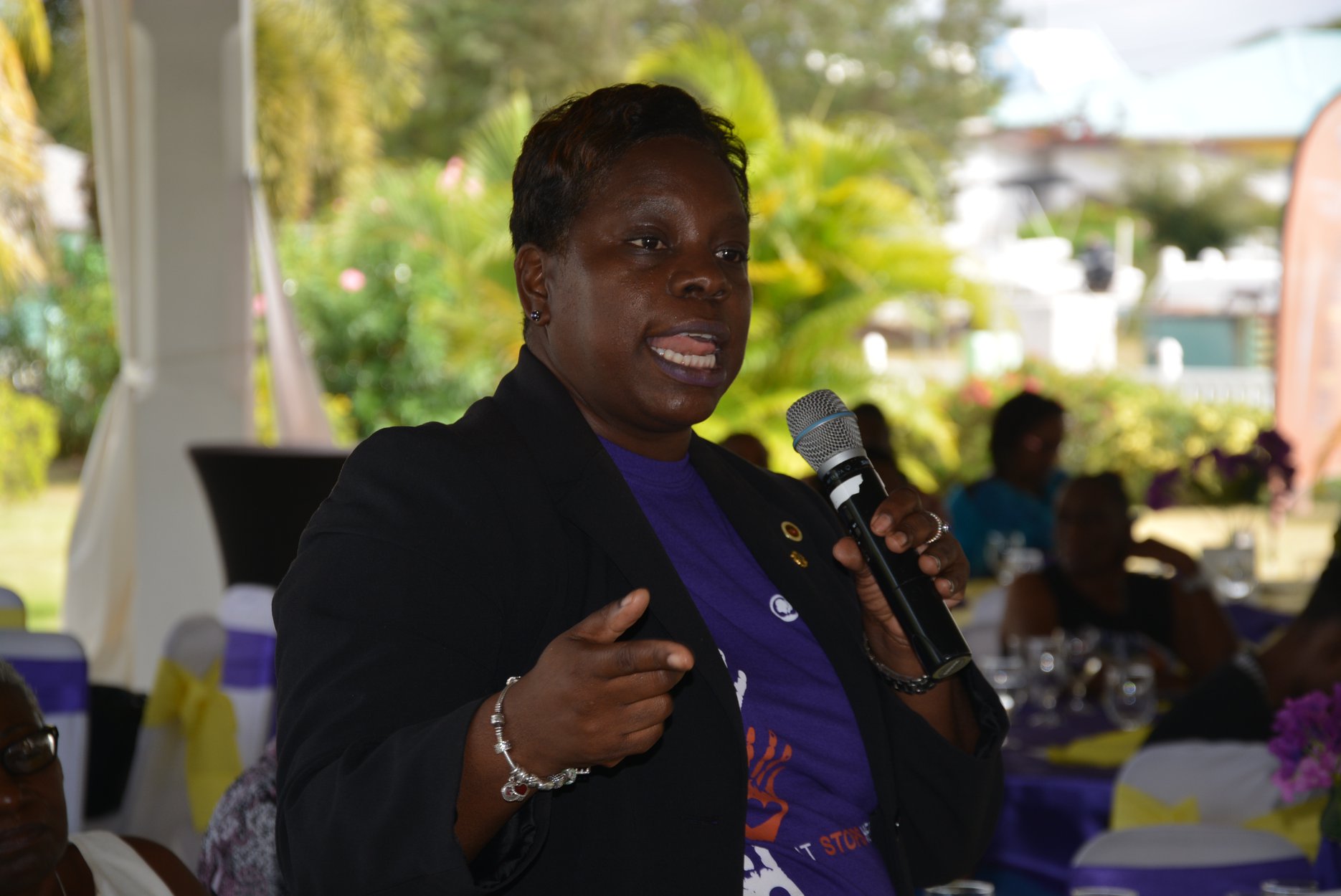Hon. Samantha Marshall, Minister of Social Transformation and Human Resource Development Message
Today Antigua & Barbuda proudly joins the rest of the world to celebrating the International Day for the Elimination of All Forms of Violence against Women and Girls, and the beginning of the 16 Days of Activism Campaign.
The 16 Days of Activism Campaign against Gender-Based Violence is an international movement celebrated annually from November 25th, which we observe as the International Day for the Elimination of All Forms of Violence against Women and Girls, to 10 December, World Human Rights Day. Every year we set aside these two weeks to remember the women who have been lost to acts of violence, and to mobilize our communities to advocate against all forms of violence and discrimination against women and girls.
Over the past year we have watched as women across the globe have used their voices to shed light on the harassment women face in every sphere of life through movements like #metoo, and #lifeinleggings. The 2018, the 16 Days of Activism Campaign builds on this momentum and champions the theme “Orange the World: Hear Me Too”. The theme encourages us all, churches, government partners, civil society, schools and universities, the private sector, sports associations, and individuals to stand in solidarity with survivor advocates and women’s human rights defenders who are working to prevent and end violence against women and girls.
Since 2015, 5 women have died, and one remains missing, as a result of intimate partner violence. We have seen headlines chronicling the stories of young girls who have been abused and assaulted at the hands of those they trusted or who are in a position of power and authority. Their stories are a startling snapshot of the seriousness of gender-based violence in our society, and must compel us to do more.
The government of Antigua & Barbuda has already taken steps to ensure that survivors’ voices are not only heard but that their needs are mainstreamed into the initiatives and policies designed to cater to them. The Support And Referral Centre (SARC) within the Directorate of Gender Affairs offers care and services to all who have experienced gender-based and sexual violence. This 24-hour, one-stop shop was developed through consultations with a variety of stakeholders, including survivors.
Measures like these and the ongoing sensitization and awareness-raising conducted by my ministry through the Directorate of Gender Affairs have indeed gone a long way to magnifying survivors’ voices and advocating for the protection of all women and girls but we will, by no means, fall into complacency. While the 16 Days of Activism gives us a moment celebrate, and to reflect on the efficacy of these measures, it also challenges us to chart the way ahead for future developments.
As we move into 2019 we eagerly await the establishment of a Sexual Offences Model Court within our nation’s High Court through a collaboration with the Judicial Reform and Institutional Strengthening or JUSRIST Project. This specialised set of court procedures aims to, among other things, reduce the re- victimization complainants experience as they navigate the court system, and to improve the timeliness and coordination of the court’s response to sexual assault cases. In fact, once the Court has been established, the average projected wait time for the resolution of a sexual offence matter will be 18 months.
As we continue to increase our efforts to listen to the voices of women and girls nationally, we must remember to tune in to those among us who are especially vulnerable to violence and discrimination. According to the United Nations, women and girls with disabilities experience gender-based violence at disproportionately higher rates based on both gender and disability. They experience domestic violence at twice the rate of other women and are at further risk of experiencing violence in institutions, isolation, and the withholding of medication and mobility, vision, and hearing aids.
Women living with HIV/AIDS and those belonging to other marginalised groups such as the LGBT community, are often isolated and unable to access support services for fear of social stigma and victimisation. These women must not be left out.
For the next 16 days let us challenge ourselves within our congregations, our communities, our schools, and places of business to provide a safe, healthy, and violence free spaces where all women and girls can share their life experiences without judgement and find support.
Let us endeavour to amplify the voices of women and girls when they speak out against the violence and discrimination in their own lives and to add our own voices to the chorus, remembering that everyone in society has an important role to play in ending violence, and that we all must work together across sectors to address the various aspects of violence against women and girls.
Hearing is not enough, we must do.
Thank you for listening, and may God bless you all.


